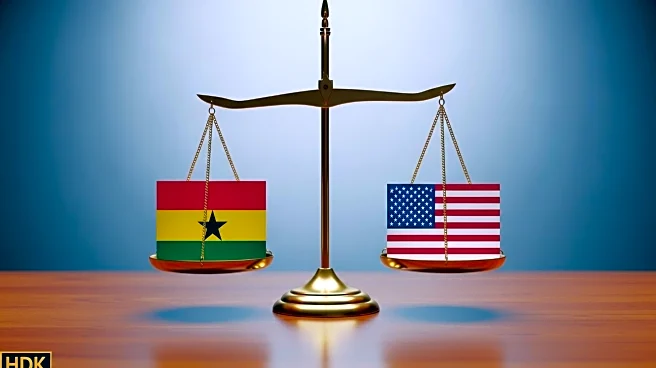What's Happening?
Ghanaian authorities have asserted that 14 African immigrants deported by the U.S. have been returned to their home countries, contradicting claims by lawyers representing the deportees. The U.S. has been sending deportees to third countries like Ghana, Eswatini, Rwanda, and South Sudan, under agreements to accept migrants. However, legal representatives argue that some deportees remain in Ghana, facing potential torture or persecution if returned to their original countries. U.S. District Judge Tanya Chutkan expressed concern over the administration's actions, suggesting they may circumvent the U.N. Convention Against Torture, but stated her inability to intervene.
Why It's Important?
This development highlights ongoing tensions between U.S. immigration policies and international human rights standards. The deportation of individuals to third countries raises ethical and legal questions, particularly regarding the potential for human rights violations. The situation underscores the challenges faced by the U.S. in balancing immigration enforcement with international obligations. The outcome of these legal disputes could impact future U.S. immigration practices and its relationships with countries involved in these agreements.
What's Next?
The legal and diplomatic implications of these deportations are likely to continue unfolding. Human rights organizations and legal advocates may increase pressure on the U.S. to adhere to international conventions. The U.S. administration may face further legal challenges and scrutiny over its immigration policies, potentially influencing future legislative or executive actions.








